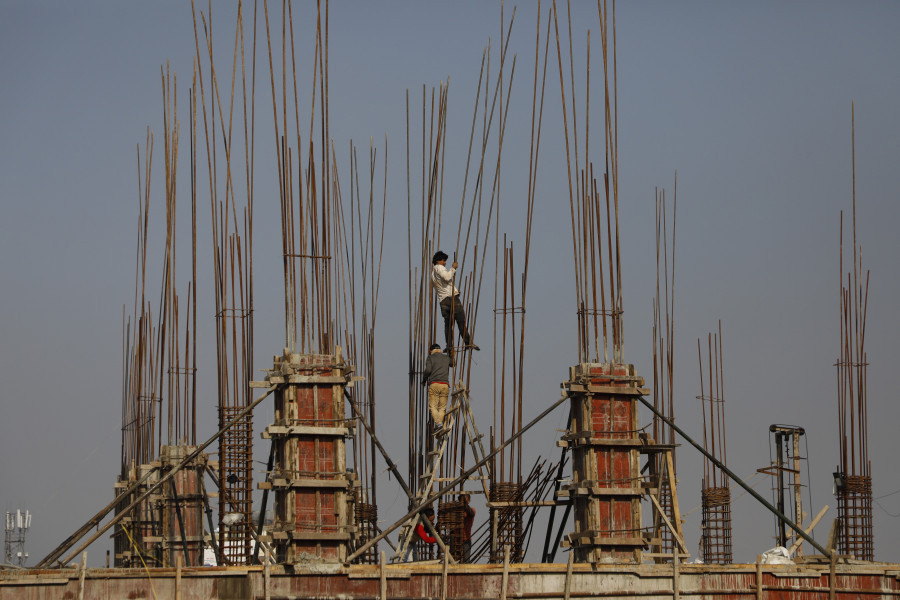Money
Domestic steel and iron prices rise as India seeks ban
Nepal has been majorly importing raw material for iron and steel and finished products from India mainly for construction purposes.
Krishana Prasain
Representatives from the steel and iron ore sectors, including the forging industry in India, have been urging their government to impose a ban on steel and iron exports to Nepal. As a result, the steel and iron prices have increased in the domestic market but domestic steel manufacturers and contractors are hoping that India will not impose the ban, as Nepal has minimal import share of steel and iron compared to other countries.
Ananda Nepal, CEO of Jagdamba Steel, said that the chances of India imposing the ban was little. “Nepal's import of iron and steel is very little anyway, so the Indian government will not ban the export of steel and iron ore,” he said.
“But if India does enforce the ban then it will create scarcity in the domestic market,” he said, adding that India traders are creating chaos to raise the profitability but the Indian manufacturers do not want it to happen.
Nepal said that the country does not even require one million tonnes of steel and iron annually, yet the hike in raw material price will have a direct impact here.
However, the price has been increased to the same ratio as in the Indian market, the domestic manufacturer said. “But with the political instability and less expenditure in development projects, the consumption will decline,” he said.
Nepal has been majorly importing raw material for iron and steel and products thereof from India mainly for construction purposes like iron and steel, pipes, corrugated sheets.
Rabi Singh, president of Federation of Contractors Association of Nepal, said the construction work and manufacturing sector has gradually started opening, pushing high demand for iron and steel in India and other countries as well. “However, domestic manufacturers said that the import of raw material has lessened,” he said. If the raw material does not arrive from India then the domestic iron and steel manufacturing and construction sector will collapse, he said.
According to Singh, the price has been hiked to Rs57 per kg of iron and steel has reached to Rs86 per kg. “It should not have increased more than Rs8-10 per kg observing the international price but it has been hiked by Rs30-35 percent,” he said. As the raw material import has declined and due to the increase in trade price, the price has been hiked. The highest iron and steel prices recorded has been Rs114 per kg in the past in the domestic market, he said.
“India has not banned import in steel and iron ore previously and I don’t think it will list Nepal in the banned country,” Singh said. But in case it happens then the government should ease the import of steel and iron ore from third countries, he said. There will be chances of smuggling of raw material from Indian and the prices will increase unnaturally increasing the construction expenses.
“I do not think that India will have any benefit by imposing a ban as Nepali market is small,” he said.
The price hike usually takes place with the difference in customs charges, as the country charges 5 percent customs duty on MS billet and 30 percent finished product. The manufacturer fluctuates the price with the difference in custom rate according to demand.
According to the Economic Times, the forging industry has written to the government of India seeking a ban on the export of steel and iron ore with the sharp price hikes of more than 25-30 percent within the past three months. “Due to the increase in export to neighbouring countries and the resultant reduction in supply within the domestic market, the price has increased,” the report said. The industry made the request so that steel demand within the country can be met in a cost/price-effective manner.
According to the Trade and Export Promotion Center, the country imported iron and steel and products worth Rs37.11 billion in the first four months of the current fiscal year, a decline of 13.8 percent compared to the same time period last fiscal as import stood at Rs43 billion.
One of the major imported commodities, the country imported iron and steel and products thereof worth Rs121 billion.




 8.22°C Kathmandu
8.22°C Kathmandu














